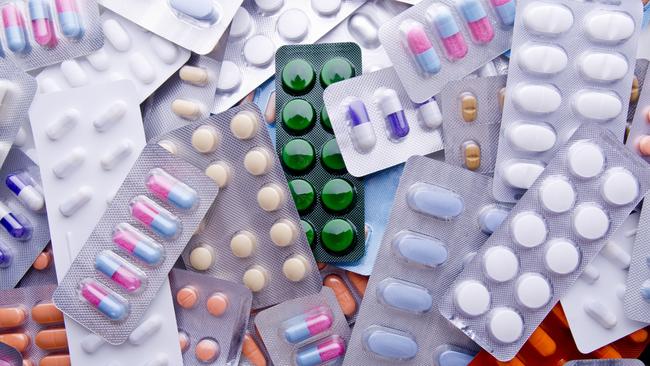Most people won’t get a $10-$12 medicine price cut after election
How much Aussies will actually save on their prescriptions is not what the Coalition and Labor have promised - and it exposes a dirty secret about the PBS.
Federal Election
Don't miss out on the headlines from Federal Election. Followed categories will be added to My News.
Exclusive: The vast majority of Australians will not benefit from the $10-$12.50 price cut to prescription medicines announced by both major parties, it can be revealed.
The Labor and Coalition pledges, detailed at the weekend, will only apply to less than three per cent of people who get subsidised prescription drugs.
And it reveals a dirty little secret about the nation’s medicine subsidy scheme.
The price of medicines has been falling so sharply in the past ten years as drugs come off patent, most no longer attract a government subsidy even though they remain on the PBS.
A drug is only subsidised by the government for general patients if it costs more than $42.50.
Analysis by the Pharmacy Guild last year showed almost three in every four scripts dispensed to general patients under the PBS already cost less than $19.
The measly nature of the discount promised by the major parties is underlined by the $150 million a year cost.
To put that in perspective it’s less than one per cent of the annual $13.6 billion price tag for the nation’s medicines subsidy scheme.

If you are a pensioner or concession card holder you will not benefit from the price cut at all because you only pay $6.80 per script.
And most general patients won’t benefit either because the price cut only applies if the medicine they buy cost more than $30 per script in the case of the Labor Party, or $32.50 per month in the case of the Coalition’s promise.
Many of the biggest-selling prescriptions in Australia cost around $22 in a suburban pharmacy and less than $10 if you buy them at a discount chemist.
The nation’s biggest selling pill – cholesterol-lowering atorvastatin – costs $22.43 at a suburban chemist, and as little as $7.50 at a discount chemist and will not be affected by the promised price cuts.
At a discount chemist, heart drug candesartan costs $9.99, arthritis drug celebrex is $8.99, antibiotic cefalexin is $7.39 and antidepressant efexor is $7.99.
None of these drugs will be subject to the $10 or $12.50 price cut promised by the major parties.
Of course the price cut is good news for those who do pay the full $42.50 co-payment and it should be welcomed.
The danger is the majority of Australians might think they will get a medicine price cut when they won’t.

The Pharmacy Guild has been calling for the price of medicine to be halved to $19.
In March Pharmacy Guild president Professor Trent Twomey said the $10 government price cut “would not go far enough, as it helps only 3 per cent of Australians”.
Now the Pharmacy Guild says: “A bipartisan commitment to address the cost of prescription medicines is a win for patients around the country who have been doing it tough and is a step in the right direction to restoring universal access to the PBS”.
Medicines Australia CEO Elizabeth de Somer said cuts to the PBS co-payment would help many Australians who are feeling the pressures of the cost of living, but it is just the tip of the iceberg for improving equitable access to medicines.
She said the price cut only helped people whose medicine was on the subsidy scheme.
Tens of thousands of patients, including many with terminal cancer diagnoses, are waiting up to eight years for medicines to be approved for a subsidy.
More Coverage
Originally published as Most people won’t get a $10-$12 medicine price cut after election





